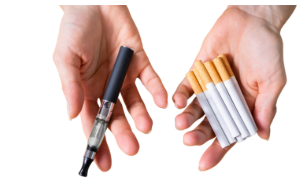Nicotine Toxicity
Nicotine isn’t just harmful to people—it can be extremely dangerous to pets. From cigarettes and cigars to nicotine patches, gum, vapes, and e-liquids, pets can be exposed in many ways. Even small amounts can cause life-threatening symptoms, especially in cats and small dogs.
Common Sources of Nicotine Exposure
Cigarettes and cigarette butts
Cigars
Chewing tobacco and nicotine gum
Nicotine patches and lozenges
E-cigarettes and liquid nicotine (e-juice or vape juice)
Some nicotine-containing insecticides
Nicotine poisoning is a real concern anywhere a pet may find nicotine products. While the flavor may deter some pets, many are curious enough to chew or ingest items like cigarette butts, gum, or e-liquid. Even a small cigarette butt can be dangerous for a small animal.
How Much Is Toxic?
Toxic dose: 0.5–1 mg per pound of body weight
Lethal dose: 4 mg per pound
One cigarette can contain 9–30 mg of nicotine.
A cigarette butt can retain 25% of the original nicotine content.
Ingestion is far more dangerous than smoking because all nicotine becomes available for absorption.
Example: a 2-lb dog can become poisoned with just 10 mg of nicotine.
A 40-lb dog can be poisoned by 1 cc (less than ¼ teaspoon) of e-juice.
Why It’s Dangerous
Nicotine is rapidly absorbed through the GI tract once it reaches the small intestine. It stimulates the vomit center of the brain early, which can sometimes help a pet vomit out the contents before full absorption—but not always.
Signs of Nicotine Toxicity
Vomiting, often early
Drooling
Diarrhea
Agitation or excitement
Tremors or twitching
Seizures
Constricted pupils
Changes in heart rate (slow with small doses, fast with large doses)
Weakness or collapse
Hallucination-like behavior
Symptoms often begin within 15–60 minutes of ingestion. Diagnosis may be aided by finding cigarette materials in the vomit. Nicotine gum may also contain xylitol, which adds additional risk to dogs.
What to Do If Your Pet Is Exposed
Do NOT induce vomiting at home unless directed by a professional.
Call animal poison control center immediately:
ASPCA Animal Poison Control: (888) 426-4435
Call your veterinarian or an emergency veterinarian
Treatment and Prognosis
If exposure was recent (within an hour), your vet may induce vomiting and administer activated charcoal to reduce absorption. Supportive care may include:
IV fluids to aid excretion
Seizure or tremor control
Heart rate monitoring
If the pet survives the first 4 hours, the prognosis is generally good. Nicotine is metabolized by the liver and eliminated in urine within 16 hours.
Prevention Tips
Never leave tobacco products where pets can reach them.
Dispose of cigarette butts, gums, and patches securely.
Store vape pens and e-liquids safely.
Watch for exposures during walks, travel, or when guests visit.
Final Thoughts
Nicotine poisoning happens fast and can be fatal. Be proactive about keeping all nicotine products out of reach, and act quickly if an exposure occurs.

